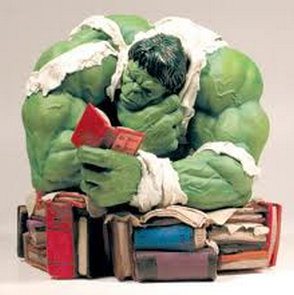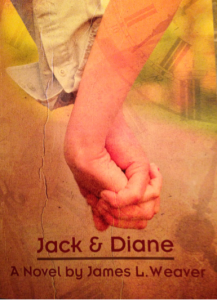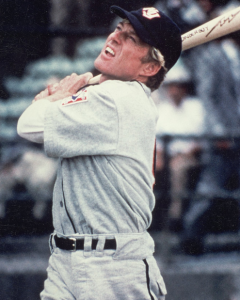James L. Weaver's Blog, page 56
June 22, 2015
Wasted Words – Part 1
I gawked and smirked amazingly at the book I had just suddenly finished, then chuckled and shrugged at the word count I believed I needed when I began so very long ago. Yeah, I know. The shitiest sentence ever and one I hope you never find in your work. That said, you know you’ve used some of those unnecessary words. Don’t lie to me.
I just completed the most painful task a writer can undertake – editing the unnecessary fluff from your manuscript. When we write that first draft, our fingers fly and we don’t (and shouldn’t) stifle our creativity by worrying about word choice at that moment. Look, I just did it. Do I need unnecessary and fluff? Doesn’t one imply the other? Ack! Did I need to use “just” twice in the same paragraph?
Anyway, Part I of this blog post will cover the list of words you should limit in your final manuscript. It’s a compilation of several lists I put together over time, adding to it as I see what other writers suggest. If you haven’t read Chris Roerden’s “Don’t Murder Your Mystery – 24 Fiction-Writing Techniques to Save Your Manuscript from Turning Up DOA”, you should.
If you use Word, click the Find button and type in the word in question. Word will find each instance and you can click and change what you need to change. TIP: When looking for small words that can be part of other words, you need to put quotes around your query. For example, if you are looking for the word “so”, make sure to type a space, so, then another space. Otherwise you’ll get so, south, soldier, etc.
Why is this important? You have such a small window to capture an agent or publisher’s attention – don’t waste time with fluff. Get to the action! An astute reader will pick up on your overused words and it becomes an annoyance. You want them focused on your story and characters, not the particular words you use. Going through this list, I sliced 4,000 words from my draft. Here’s the big hitters from my latest draft of my novel.
Sat down – If someone is sitting, they are going down. Pete sat down in the chair. Change to Pete sat in the chair. Try to eliminate “sat” altogether. I dropped 111 instances down to 33. The same works with stand up and sit down.
That – Bet that you can eliminate the majority of instances that you used it.
Just – Definitely overused, not as much as the word that, but close. Justin just wanted to go to the movies. Change to Justin wanted to go to the movies.
Not – Many times, we use not when we should make the sentence more active. He focused not on the table, but the folders on top of it. Change to He focused on the folders on the table.
Sighing/Sighed – This is a cheat and hard not to use. I had 27 instances of sighing in my draft that I cut down to 1. “I know,” she sighed. Throw in a more active body description that conveys the physical condition that would lead one to believe she would sigh. “I know,” she said, shoulders slumping.
Then – Like “that”, “then” is often unneeded. John ran to the corner and then stopped at the mailbox. Change to John ran to the corner and stopped at the mailbox or John ran to the corner, stopping at the mailbox.
Guffaw, Guffawing, Guffawed – Used to denote laughter. Don’t use this word. Ever. Seriously.
Chuckle, Chuckled, Chuckling – Like guffaw, but not as egregious. Limit to one or two per manuscript.
Nod, Nodded, Nodding – I had 145 instances of someone nodding. My characters must have looked like a bunch of bobblehead dolls. I dropped it down to 22, just the ones I really needed. Jake nodded. “I’ll be there in the morning”. Change to “I’ll be there in the morning,” Jake said.
Shrug, Shrugged, Shrugging. Like nodding, it’s often an overused gesture. Does your character shrugging add to the story or take away from the action? I had 47 instances in my book when I only needed 4.
Looking, Looked – Overused. Change The files you’re looking for have the information to The files have the information. Or He looked at the broken windows on the house. What about the windows? How about The broken windows were like jagged teeth.
About – Do you really need it? Typically used to describe a vague quantity or someone describing an object. Change The bag weighed about twenty pounds to The bag weighed twenty pounds. We don’t care if it was twenty-one or nineteen. Change Billy talked about the exchange to Billy discussed the exchange.
Big, Small, Short, Tall, Fat, Thin – These are vague descriptors that can differ from reader to reader. What’s big to me might not be big to you. Get specific and more creative. Change He was a big man to His crew cut brushed the ceiling of the car as he climbed inside. Change She was thin to Her ribs jutted from her torso.
Hear, Heard – Change to something more active. Jack heard the glass breaking behind him to The glass shattered behind Jack. Another could be He heard the deadbolt click to The deadbolt clicked.
Saw – Like hear or heard, change to something active. The girl saw them approach and ran over to The girl ran over as they approached.
“!” – The dreaded exclamation point. There’s no reason to have an exclamation point. If you stick it at the end of dialog because you feel you need it for emphasis, rewrite stronger dialog.
“ly” – Limit your adverbs. Action shows, adverbs tell. Change dimly lit hallway to dim hallway. Change “You jerk,” Kate said angrily to Kate shoved him in the chest. “You jerk.”
Were, Was, Had – When we tie these in with a verb, we form a passive voice. Example are were going, was turning, had gotten. Try went, turned and got.
Started, Began – If someone starts or begins to do something, they’re doing it. Change He started to walk to the car to He walked to the car. Change She began to sing the song to She sang the song.
These are just a few items for you to search your manuscript and see if you can come up with a better way. I hope this helps tighten your novel.


May 4, 2015
American Idol and The Self-Published Novel
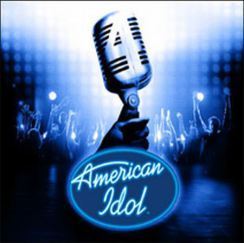 I’m sure at one point in your life you have ventured upon the television show American Idol and watched those train wreck auditions. I’m talking about the people that think they can sing, but sound like a wailing alley cat in heat, making you cringe and reach for the remote. They have no training, no coaching and the sum of their experience is their local watering hole on karaoke night. They genuinely believe with their heart and soul they have the pipes to be the next American Idol. After the judges snicker and tell them no, the would-be contestants stand with slack-jawed amazement that they received no standing ovation or yellow ticket to Hollywood. In reality, it’s not their fault – they have a dream and have been told by someone, somewhere in their life they have the talent to make it, but it’s quite obvious nobody has told them the truth. It’s just not good enough.
I’m sure at one point in your life you have ventured upon the television show American Idol and watched those train wreck auditions. I’m talking about the people that think they can sing, but sound like a wailing alley cat in heat, making you cringe and reach for the remote. They have no training, no coaching and the sum of their experience is their local watering hole on karaoke night. They genuinely believe with their heart and soul they have the pipes to be the next American Idol. After the judges snicker and tell them no, the would-be contestants stand with slack-jawed amazement that they received no standing ovation or yellow ticket to Hollywood. In reality, it’s not their fault – they have a dream and have been told by someone, somewhere in their life they have the talent to make it, but it’s quite obvious nobody has told them the truth. It’s just not good enough.
Why do I bring up American Idol? I’ve started and stopped several self-published books in the last several weeks. I really wanted to like them, but had to put the books down after a few chapters. Why? They’re just not good enough. It’s not that the story ideas were bad; in fact, some were quite intriguing in their premise. It’s the writing.
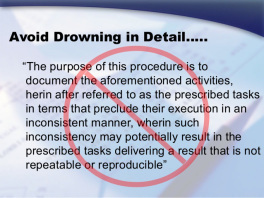 I love it when writers set the scene. A good scene compliments the action of the story, gives a place for my mind’s eye to watch the action unfold. But, for example, all I need to know is the woman wore a floor-length blue dress. I don’t need to know how many different adjectives you can come up with for the color blue, the number of stitches on the dress, how many sequins adorn the sleeves, where the fabric was purchased from, and the history of the arthritic woman who sewed it when she has nothing to do with the story.
I love it when writers set the scene. A good scene compliments the action of the story, gives a place for my mind’s eye to watch the action unfold. But, for example, all I need to know is the woman wore a floor-length blue dress. I don’t need to know how many different adjectives you can come up with for the color blue, the number of stitches on the dress, how many sequins adorn the sleeves, where the fabric was purchased from, and the history of the arthritic woman who sewed it when she has nothing to do with the story.
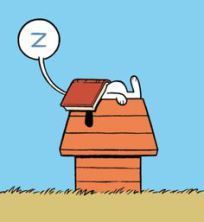 When your MC walks into a room with three other people in it, I want to know what happens. What does your MC do? I don’t need a historical biography of two paragraphs per character and your MC’s entire history with each of those people. Not only is it a lazy background dump that is not germane to the story, but you’re taking me away from the action which is where I want to be. By the time you circle back to what the MC is doing, I’m already gone.
When your MC walks into a room with three other people in it, I want to know what happens. What does your MC do? I don’t need a historical biography of two paragraphs per character and your MC’s entire history with each of those people. Not only is it a lazy background dump that is not germane to the story, but you’re taking me away from the action which is where I want to be. By the time you circle back to what the MC is doing, I’m already gone.
To be clear, I’m not some prolific writer looking down my nose at my fellow authors. I’m struggling up the writing ladder the same as most of you. I’m also not saying that my writing is always perfect and concise. Quite the contrary. I struggle with killing my darlings like everyone else and wish I heeded my own advice several years ago.
What I am saying is that before you self-publish your baby, FIND AN EDITOR! I want to hear your story and get lost in it. I want the journey and to feel the trials and tribulations of your characters. But, I can’t enjoy the story if I’m editing your jumbled mess in my head while I’m reading it.
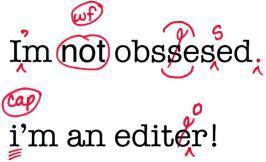 You need two types of editors (and if you’re lucky, you’ll find one person who can perform both roles). Editor One fixes the grammatical problems you will undoubtedly have. You need that person who adds the commas and semi-colons. That person who shows you have your MC “wringing her hands” eight times in the same chapter. That person who suggests moving Chapter 15 before Chapter 14 to help the flow. That person to remind you that you’re telling rather than showing.
You need two types of editors (and if you’re lucky, you’ll find one person who can perform both roles). Editor One fixes the grammatical problems you will undoubtedly have. You need that person who adds the commas and semi-colons. That person who shows you have your MC “wringing her hands” eight times in the same chapter. That person who suggests moving Chapter 15 before Chapter 14 to help the flow. That person to remind you that you’re telling rather than showing.
Editor Two is what I call “The Decimator”. The Decimator can be a friend you trust, a fellow author, a stranger you met on Twitter through the #amwriting hashtag, or just some dude at work who you know reads two books a week. Just find someone who WILL TELL YOU THE TRUTH. Someone to say “This part is boring”, “no freaking way this scene could ever happen”, “delete this entire paragraph”, and “I laughed out loud at this scene” where it’s not a scene you wanted the reader to laugh. Someone who will not only tell you the good parts about your work, but who will tell you what sucks. We’re all too close to our babies to see it (or we know it’s weak and we’re hoping the reader won’t notice). Trust me, they notice.
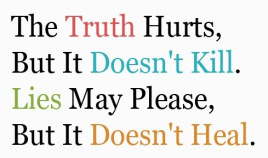 We all know how worthless it is to get feedback from a beta reader and all they tell you is “It’s good” or “I liked it”. THAT DOESN’T HELP ME! I need to know where you got bored, confused, what sucks. I can’t fix it if I don’t realize it’s broken. The truth hurts, but it will make your work stronger and you have to find someone who will give it to you.
We all know how worthless it is to get feedback from a beta reader and all they tell you is “It’s good” or “I liked it”. THAT DOESN’T HELP ME! I need to know where you got bored, confused, what sucks. I can’t fix it if I don’t realize it’s broken. The truth hurts, but it will make your work stronger and you have to find someone who will give it to you.
So, my fellow authors with the dream, PLEASE have someone edit your work before you hit that submit button. You spent hundreds of hours creating your novel. You are dying to get it out there for the world to enjoy. I know, I get it. But, take the extra time and maybe even spend a few bucks to have an editor or unbiased party review it. Trust me, it’s worth it and you need it. We all do. It’s your baby and you want it to shine and sparkle. I want you to walk out of the audition room with that yellow ticket, not empty handed.


April 3, 2015
I’m a Writer…It Just Took Me 20 Years To Realize It
I’m a writer. It sounds funny to say because when people I meet ask what I do for a living, I don’t say “I’m a writer” because that’s not where I earn the living wage that puts a roof over my family’s heads and overpriced shoes on my kids’ feet. Writing for a living is what I aspire to in wavy dream sequences involving the furious pounding of laptop keys while looking out an absurdly large bay window with inspiration inducing waves crashing in from the pristine, white sand beach outside the cottage I bought because my accountant said I needed to start spending the money I’ve earned from all those New York Times Best Sellers. Plus, those A-list actors who starred in the Oscar winning movie adaptions of my books kept pestering me to come visit and hang out, and I figured they didn’t want to hang in Kansas City no matter how wickedly awesome the barbecue. So, the beach house in Aruba just made sense.
Sigh. Shake back to reality. I’m a writer. Technically, I’m not a pure amateur writer. I’ve been paid a few peanuts for my craft here and there, so I have to think I’m above the average of most aspiring writers if the average is somewhere between nothing and enough to buy a big screen television. And I’m not talking some knockoff television brand you’ve never heard of. I’m talking the big kids on the block! You know…hundreds and hundreds of dollars. No, not thousands of dollars. Hundreds. Pay attention, people.
I’ve been writing for years…literally decades with starts of novels and a myriad of mediocre short stories that litter the bottom of a dusty drawer in my home office like newspaper at the bottom of a birdcage. They aren’t bad stories, but they’re not great either. I probably wouldn’t published them if I ran a magazine and I can accept that. But, they were a start. You can’t make an omelet without breaking a few eggs.
My first foray into novel writing came in the early 1990’s after I read a book by an author who shall remain unnamed. It was a New York Times Best Seller and one of many he’d written. It was an uninspiring piece of shit. The plot was stupid, the characters were flat, the dialogue was stilted and uninteresting, and it was all I could do not to just stop reading. It just pissed me off that this kind of mediocrity was successful.
I knew I could do better, so I rolled up my sleeves and began pounding out a draft. I have to say, the book turned out to be a pretty decent cop vs. serial killer affair. I don’t even think I still have it electronically, but if I run out of ideas, it has the potential for a reboot, minus all the references to my main character’s bag phone.
My first paying gig came five years later, a six-part fictional piece called “The Nuts” about a professional poker player that was published in Bluff, America’s leading poker magazine at the time. My name in print – both in a real publication and on a freaking check. I stood in my tiny living room and let the moment wash over me. I got paid to write. It was better than sex. Thinking I was on a roll, I agent hunted the serial killer novel to an avalanche of rejection letters. I had them taped up, a macabre wallpaper to my office, thinking what doesn’t kill my spirit only makes it stronger. However, the longer I waited for a positive response from an agent, the louder the devil with the red pen on my shoulder whispered in my ear that I wasn’t good enough, that what I wrote was shit. The little bastard was wrong that the book was shit, but he was right that it wasn’t good enough. The rejection wallpaper came down and the novel went into a drawer.
In the early 2000’s, I started tinkering with an idea about a boy and a girl in suburban America in the 1980’s. It was more than a dozen years ago and I honestly don’t remember what exactly inspired it. I distinctly remember finishing that first chapter and showing it to my wife saying “This is the one. This is really good.” Six months later I finished it and started agent hunting without nearly enough time spent reflecting, editing and rewriting. Another avalanche of rejection letters and a year later, the little devil with the red pen won out and the novel went back to the bottom of the dusty drawer.
In 2011, after starting a couple new novels which all fizzled out after the first 50 pages, I found that boy meets girl manuscript while looking for tax records. I read it and fell in love with it all over again. I spent months editing and rewriting, and gave it to some beta readers for feedback. I actually had a couple of them tell me they cried when they read it. Not because their friend was such an awful writer, but because my words touched them. Only a writer can know the joy that comes from making someone cry because of your work. I was going for another round of agent hunting when my mom announced she had cancer. The prognosis was not good – mere months. It was devastating. Mom always encouraged my writing and I could think of nothing I wanted to do more than to put that completed novel in her hands before she passed, and self-publishing was the only way to do it.
So, my first novel, Jack & Diane, was published at the end of 2012 by Madimax Publishing (my own little publishing name I derived by mashing the first names of my two wonderful kids together). It’s available on Amazon.com – the book, not my kids. Sure, it was self-published, but it was done and out there for consumption by the masses. I didn’t do it to sell a million copies. I did it for my mom. She passed away before I could get the book in her hands, but it’s a goddamn good story and the readers of this blog should read the reviews out on Amazon if you have any doubts. A few of them are actually from people I don’t know.
With Jack & Diane, I scored an average of 4.2 out of 5 on the 22nd Annual Writer’s Digest Self-Published Book Award submission. The excerpt from the reviewer said the following:
“It’s now impossible for me to get John Cougar Mellencamp’s “Jack and Diane” out of my head, having just read James L. Weaver’s novel of the same title. The best thing about Weaver’s book is its often elegant, lovely prose, along with an opening scene that draws the reader in immediately. Weaver creates very solid characters, and he wisely allows the narrators to alternate, which provides verisimilitude and quickens the novel’s pace. I’m almost exactly of the right age to read this book, having lived through the time, with all of its music and cultural references. But even readers who are younger and older than me will enjoy the book, because the book’s power is not in its cultural specificity, but in its characters.”
So, and (cue shameless plug –http://amazon.com/dp/B00A2I28J6) BUY IT! You won’t be disappointed.
The great feedback from Jack & Diane has unlocked the official “get off your lazy ass and do it” writer in me. I spent eighteen month writing and re-writing another novel called Poor Boy Road for which I’m currently seeking representation and am working on the last few chapters of the stand-alone sequel. I love this book – a crime mystery/thriller set in a small central Missouri town in the Lake of the Ozarks.
With “The Nuts” and the other short stories, I felt like a minor league baseball player floundering away in some piss-ant, A-ball small town with a dream of getting to the big leagues someday. We writers all dream of getting to The Show – to see our books on the NY Times Best Seller list, to see our books on a brick and mortar shelf, to someday be on a plane and sit next to somebody reading our book. We have a story to tell and the story only means anything to us if it means something to someone else.
I truly believe Poor Boy Road is my 100 mph fast ball. It’s my Wonder Boy with the lightning bolt etched into the wood of my Louisville slugger.
It’s my ticket to The Show. I believe in it and no amount of agent rejection letters or non-responding agents are going to prevent me from getting there. I just have to find the right one. Stick around for the ride, friend. I’ll save you box seats at the stadium.

Welcome Dear Reader!
To me, writing is like a long, cross-country trip. There are sights to see, things to do and lots of staring blankly out the window with your mind wondering if you’re ever going to get to your destination. I hope you’ll join me on the adventure. I’ll do my best to make the trip exciting, weave an entertaining tale to help pass the time and I promise we’ll veer off the highway into some off-beat places. Enjoy the ride. I would love for you to follow me on Twitter @WildcatJim2112.



